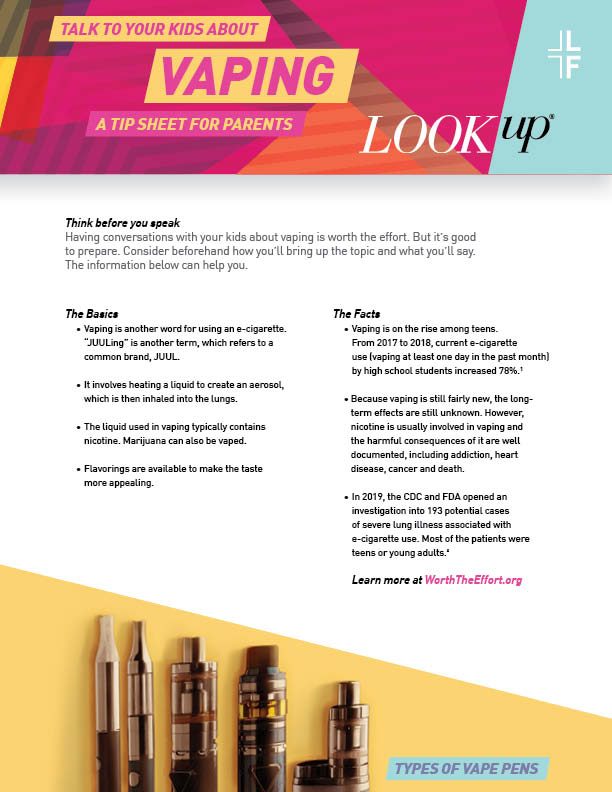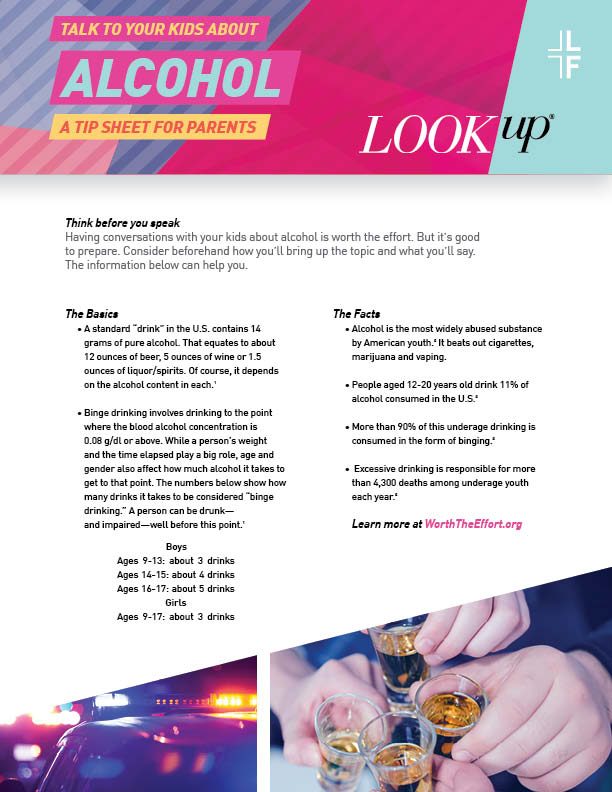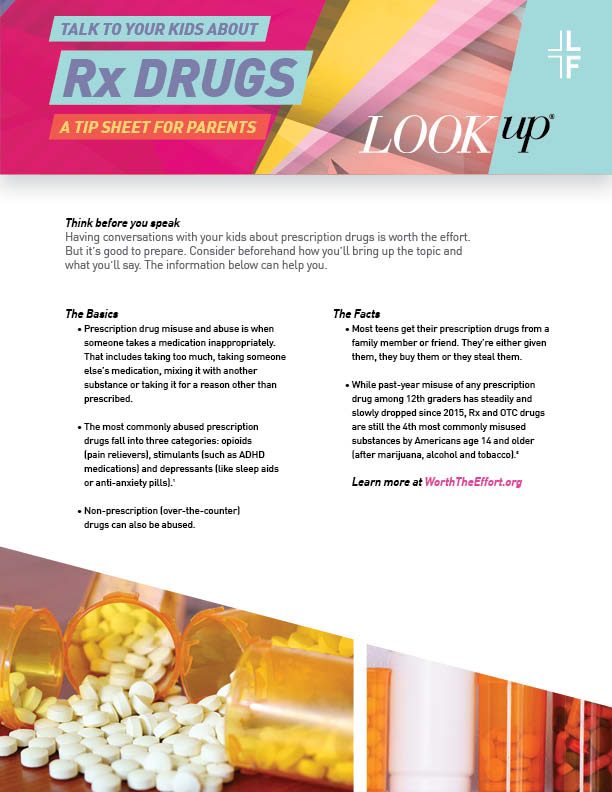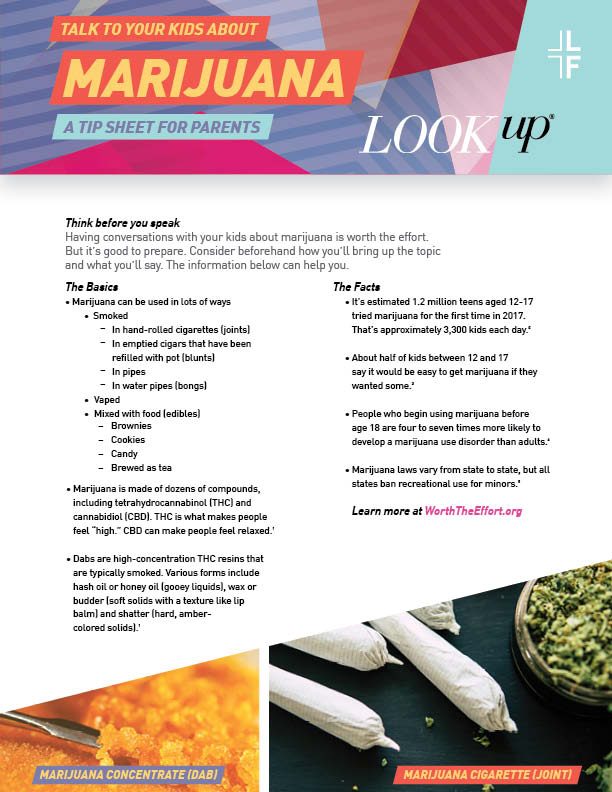Parent Guides
Talk to your teens about drugs and alcohol
Download our parent guides for ideas on how to talk to your teen about drugs and alcohol.
Preparing for the talk
Choose an informal setting.
It doesn’t work well to have a “family meeting where we’re going to talk about drugs.” Kids don’t respond well to that. Instead, try to bring up the subject when your kids are relaxed and you’re just enjoying each other’s company, such as in the car or when you’re shopping or exercising together.
Don’t have just one conversation.
Many short talks are better than one long one. Keep talking about drugs and alcohol as your kids get older.
Clearly state what you expect.
Don’t be vague. Your kids should know exactly what the family rules are and what the consequences will be if those rules are broken. They should also understand why you’re making those rules.
Support. Don’t accuse.
Your kids should come away from these conversations feeling like you’re always there for them, not that you suspect them of doing something wrong.
Don’t lie.
If your kids ask if you drank or tried drugs when you were their age, and you did—be honest. Acknowledge it was risky and emphasize that more is known about drinking and drugs now than back then. Most importantly, don’t let your past hold you back from talking to your kids. Being a good role model doesn’t mean you have to have a perfect past.
Set a good example.
If you’re currently doing the things you tell your kids not to do, they won’t put much weight in what you say. If you need help, don’t try to hide it. Get the assistance you need.




